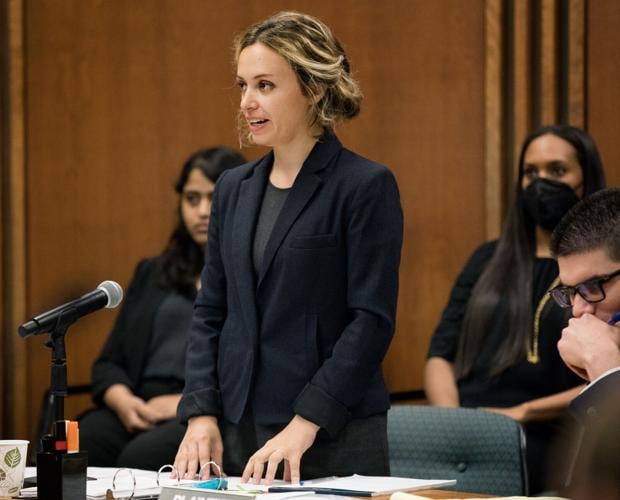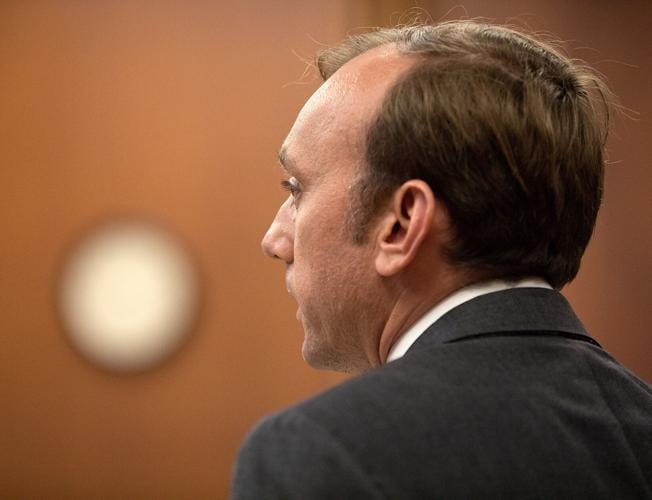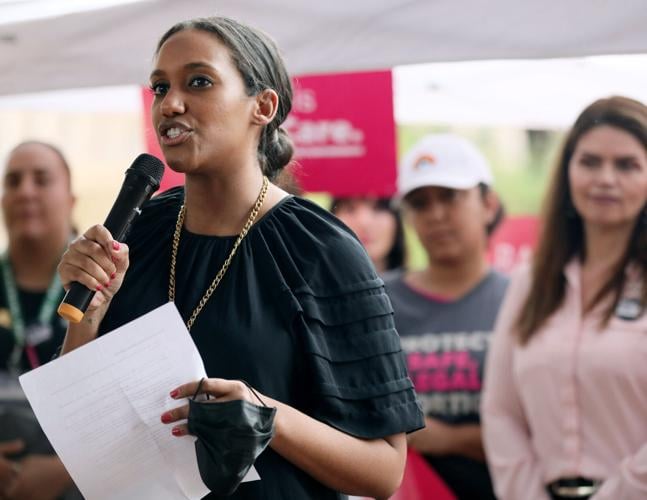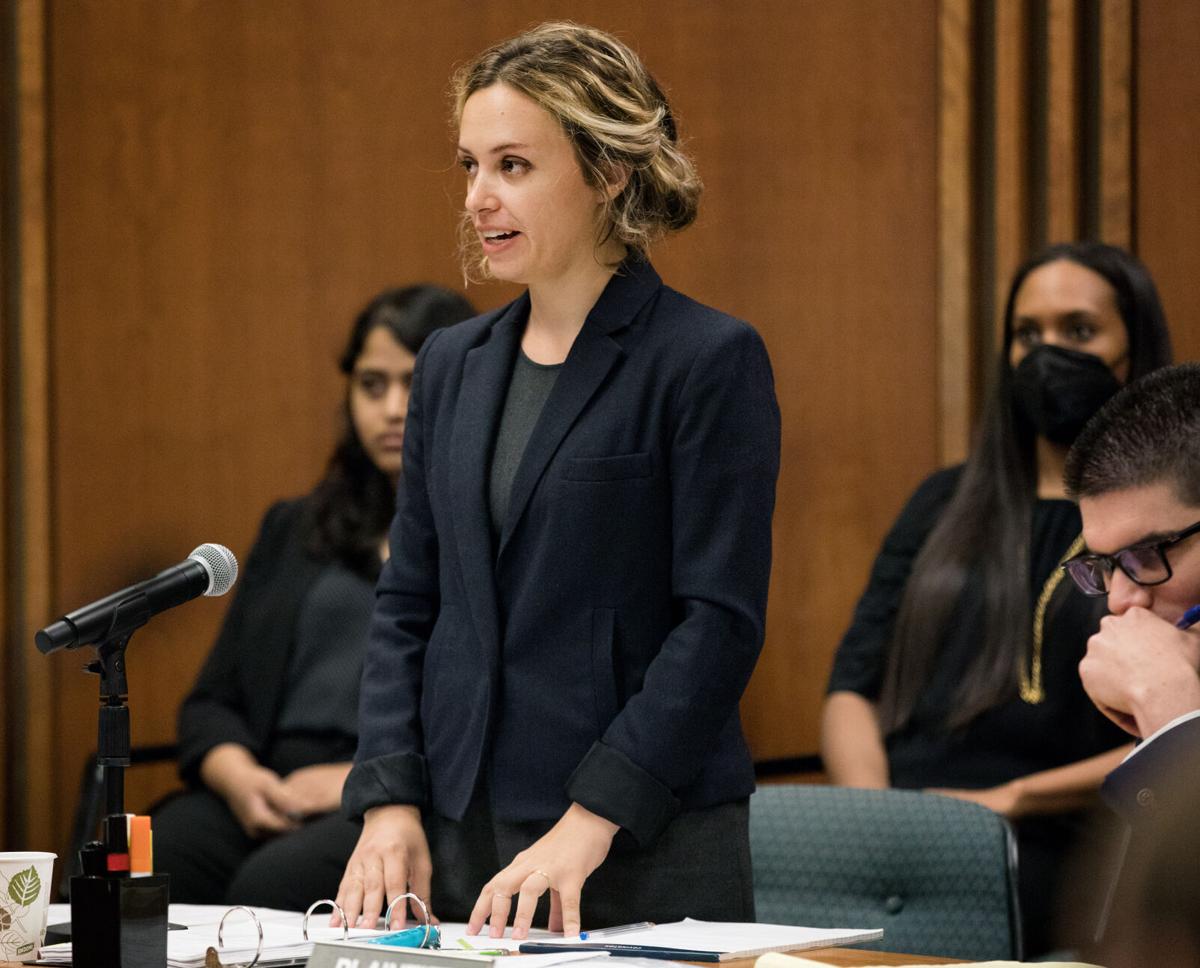Lawyers for Arizona Attorney General Mark Brnovich and Choices Pregnancy Center asked a Pima County judge Friday to leave policy arguments to the state Legislature and allow prosecutors to enforce a near total ban on abortions enacted more than 100 years ago.
But Planned Parenthood of Arizona and the Pima County Attorney's Office urged Superior Court Judge Kellie Johnson to not "go back in time," and to allow licensed physicians to continue to perform abortions up until the 15th week of pregnancy.
After an hour of arguments in the case — which centers around a 50-year-old lawsuit — Johnson said she would take the matter under advisement and issue a written ruling no sooner than Sept. 19.
Pima County finds itself at the epicenter of the battle over reproductive rights in Arizona because of a lawsuit that predated Roe v. Wade, in which Planned Parenthood sued both the Pima County Attorney's Office and the Arizona Attorney General's Office and obtained an injunction against an abortion ban that dates as far back as 1901.
A Pima County judge sided with Planned Parenthood at the time, calling the law overly broad and saying it violated the fundamental rights of a woman's marital and sexual privacy.
But this June, the U.S. Supreme Court overturned the landmark 1973 decision in Roe v. Wade that there is a constitutional right to abortion. Brnovich then filed a motion in Pima County to lift the injunction, asking Johnson to restore his power and the power of local prosecutors to criminally charge doctors who perform abortions.
The Republican attorney general said that while the old, pre-Roe law is back in effect in 14 other counties in the state, the injunction still blocks his office's and Pima County prosecutors' ability to enforce the abortion ban in Pima County.
The lawsuit was filed in 1971 by the now-defunct Planned Parenthood Center of Tucson, 10 doctors and an anonymous pregnant woman who was seeking an abortion. After Pima County Superior Court Judge Jack Marks granted the injunction, the Arizona Court of Appeals initially overturned his ruling, but it reversed its position in 1973, after the Supreme Court's ruling in Roe.
In its response to Brnovich's motion, Planned Parenthood of Arizona cited multiple other laws approved by the Arizona Legislature in the years following the 1973 Roe decision, which meant a Pima County judge couldn't just dissolve the injunction without considering those facts.
On July 22, the Pima County Attorney's Office filed court documents supporting Planned Parenthood of Arizona's response to the motion to lift the injunction. In the filing, Chief Civil Deputy Sam Brown acknowledged the law on the book that dates back to territorial days, but pointed out that a ban on abortions after 15 weeks of pregnancy, approved earlier this year by the Legislature, contains specific language indicating it does not repeal the older, stricter law. He wrote that the new law falls in line with the Supreme Court's June decision, which leaves the question of abortion legality up to each state's legislature.
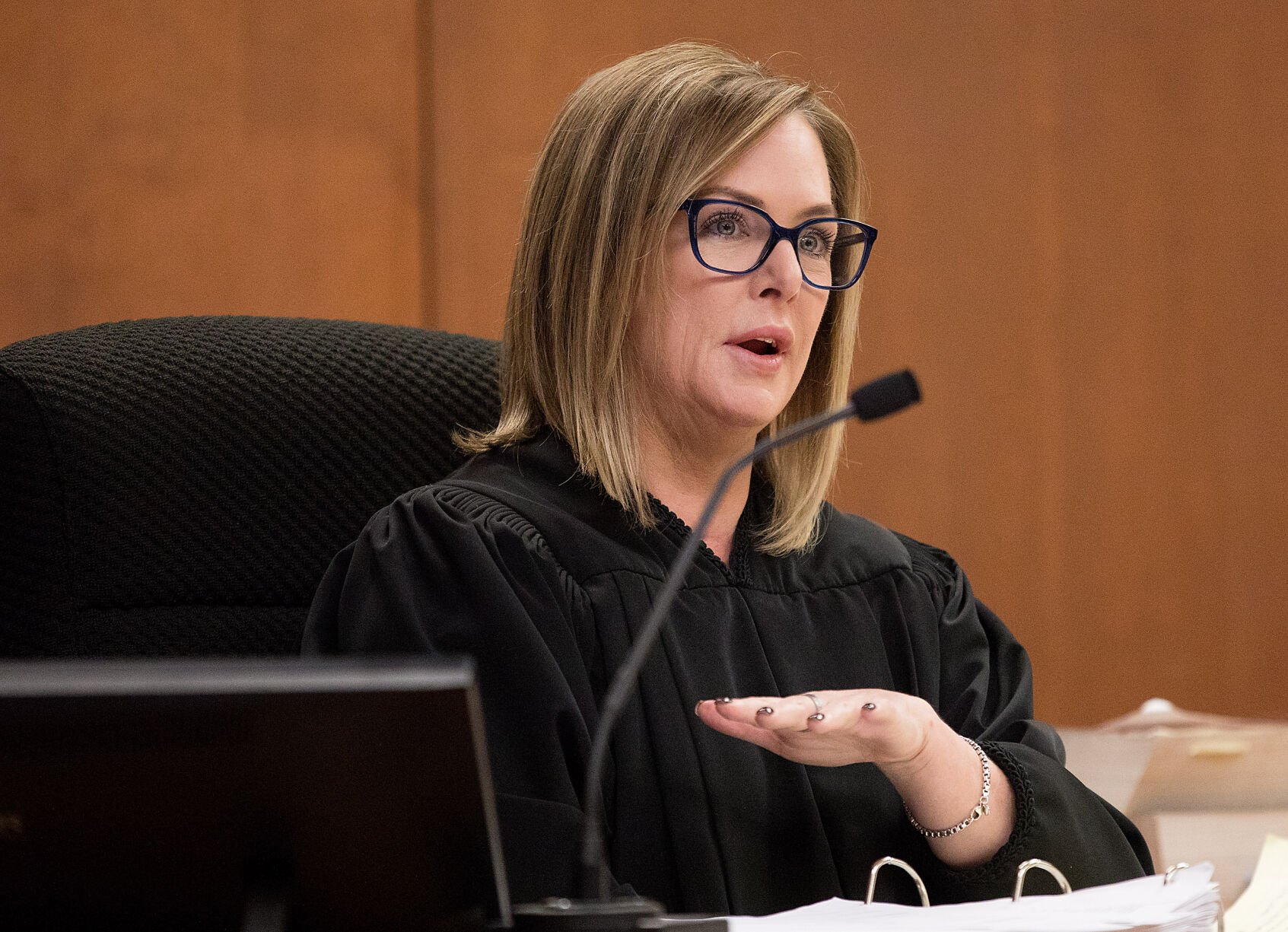
Superior Court Judge Kellie Johnson says she will issue a written ruling no sooner than Sept. 19 on the abortion ban case.
At the time, County Attorney Laura Conover, a Democrat, said her office sided with Planned Parenthood because the group had the more persuasive legal argument, saying that "a great deal of statutory legislative work and case law has occurred in 50 years" and that "the landscape has changed."
Judge hears arguments
During Friday's hearing, Assistant Attorney General Beau Royston III said the territorial-era law in question — which bans abortions unless the mother's life is in danger — should apply in full force now that Roe has been overturned. But he suggested Johnson could grant a limited stay that would allow plaintiffs to appeal the ban in specific cases, calling this option the "least disruptive."

Assistant Attorney General Beau Royston III makes a statement during a hearing in Pima County Superior Court on Friday.
But Sarah Mac Dougall, an attorney representing Planned Parenthood, said this option misunderstands the gravity of a situation patients might find themselves in.
"People's lives will be at stake... and doctors might not understand if they can provide care to patients," Mac Dougall argued.
She said that asking Johnson to "harmonize" the old and new laws — allowing existing restrictions and the 15-week ban to be enforced against doctors, with non-doctors being subject to the total ban — was nothing extraordinary, legally speaking.
"Arizona has a very well-established methodology of what courts do when there are statutes of the same subject, and that is to harmonize them," she said. "We cannot go back in time. The fact that I'm standing before you means it's 2022 and not 1973."
Mac Dougall said that Brnovich tweeted the day Roe was overturned that SB 1164, the newly passed Arizona law that bans abortions after 15 weeks except in the case of a medical emergency, would become the law. She argued that anticipating changes to Roe v. Wade, the Arizona Legislature could have opted to reinstate the pre-Roe ban, but instead passed the 15-week ban, and that the court should consider the Legislature's intent when making its decision.
But Royston said when SB 1164 was passed, there was "great uncertainty" about what the Supreme Court would do, and that the bill specifically says nothing in it repeals the original ban.
"This is the law, and as a court of law, its job is to apply the law. All these policy arguments can go to the Legislature, which convenes in January," Royston said.
The County Attorney Office's Brown argued alongside Planned Parenthood.
"There are three different definitions that suggest when an abortion is allowed in Arizona. If and when this injunction is lifted, there will be a fourth. On September 24th, there will be a fifth," Brown said, referring to SB 1164 taking effect. "The law in Arizona must be clear and concrete to prevent arbitrary enforcement."
Kevin Theriot, an attorney for the Alliance Defending Freedom representing Dr. Eric Hazelrigg of Choices Pregnancy Center, called Planned Parenthood's characterization of SB 1164 incorrect, saying the intention was to restrict abortion as much as possible.
"That this was actually an attempt to legalize abortions is a new idea they’ve adopted specifically for this case," Theriot said.
Hazelrigg is seeking to join the lawsuit as a guardian ad litem of unborn children, with the guardian in the original case having died. Planned Parenthood is opposing the succession, an issue Johnson is also taking under consideration.

Brittany Fonteno, president and chief executive officer of Planned Parenthood Arizona, speaks during a press conference following a hearing in Pima County Superior Court on Friday.
Johnson said she would issue a ruling after Sept. 19, the deadline for last of the original plaintiffs to consent to be included in any resolution in the case.
Rally outside courthouse
Before and after the hearing, supporters of abortion rights gathered with Planned Parenthood representatives and Tucson Mayor Regina Romero at the courthouse to condemn Brnovich's effort.
Despite the rain, about 50 community members of all ages huddled underneath the eaves of Superior Court, chanting “Bans off our bodies” and “Sí, se puede.”
“At this day and time in history, we are seeing younger people have much less rights than our mothers and ourselves,” said Romero, a Democrat. “We cannot and should not let that happen and we will do everything we possibly can, including going to court, to defend our bodily autonomy.”
Romero said that while they wait for the ruling, supporters of abortion rights will continue to rally, march and organize voters in Arizona.
Hollis Toal, 84, carried a pro-choice sign at the rally, and said he is an avid supporter of Planned Parenthood.
“This is the worst thing that could’ve happened,” Toal said. “We need to do everything we can to correct the situation.”
After the hearing, Planned Parenthood Arizona President and CEO Brittany Fonteno also spoke.
"To our patients, Planned Parenthood Arizona doors stay open no matter what," Fonteno said, although clinics in Arizona have stopped providing abortions for now. "We will never stop fighting for you, your fundamental right to abortion and the right to make your own personal decisions about your bodies, your lives and your futures."


